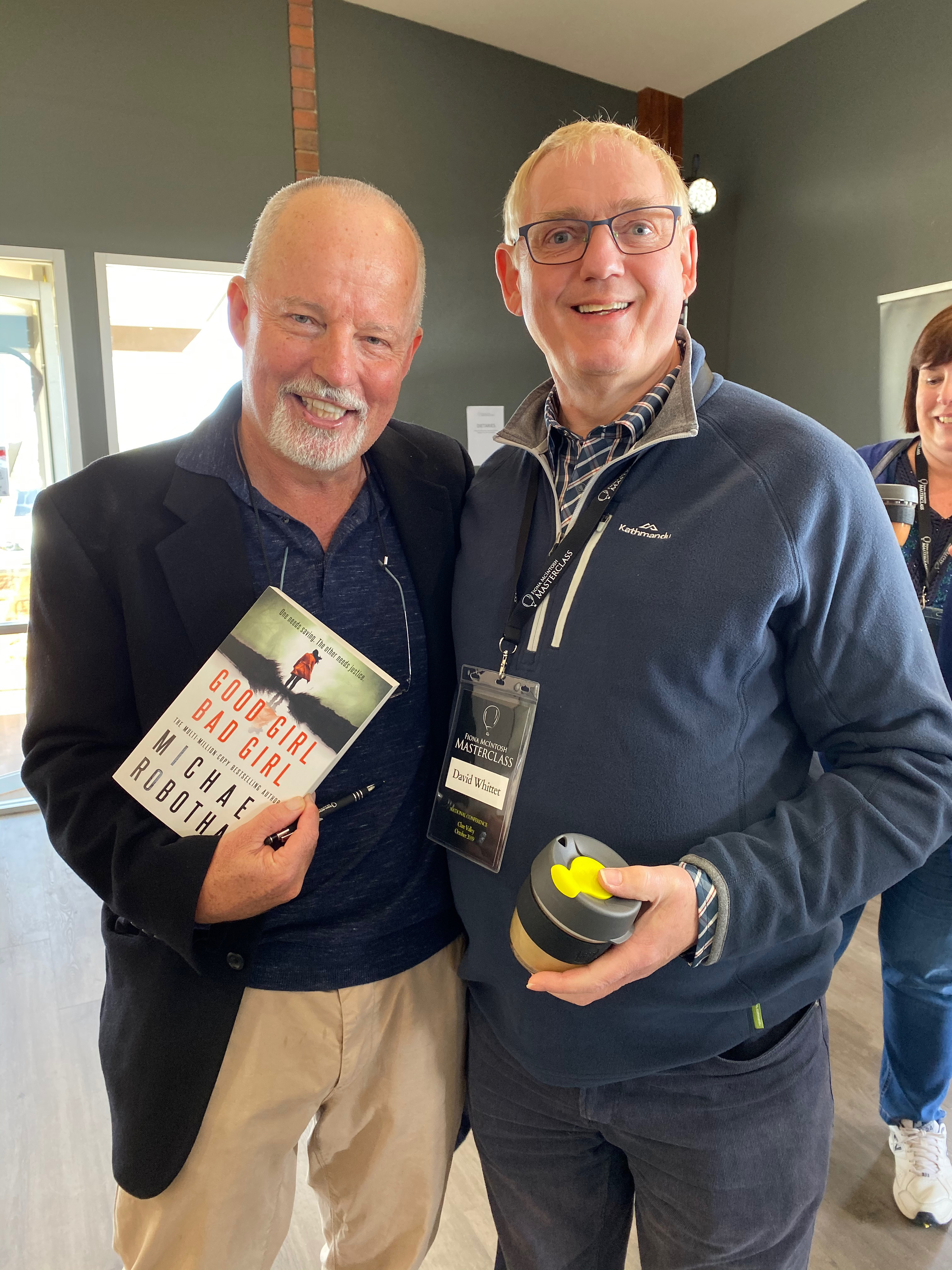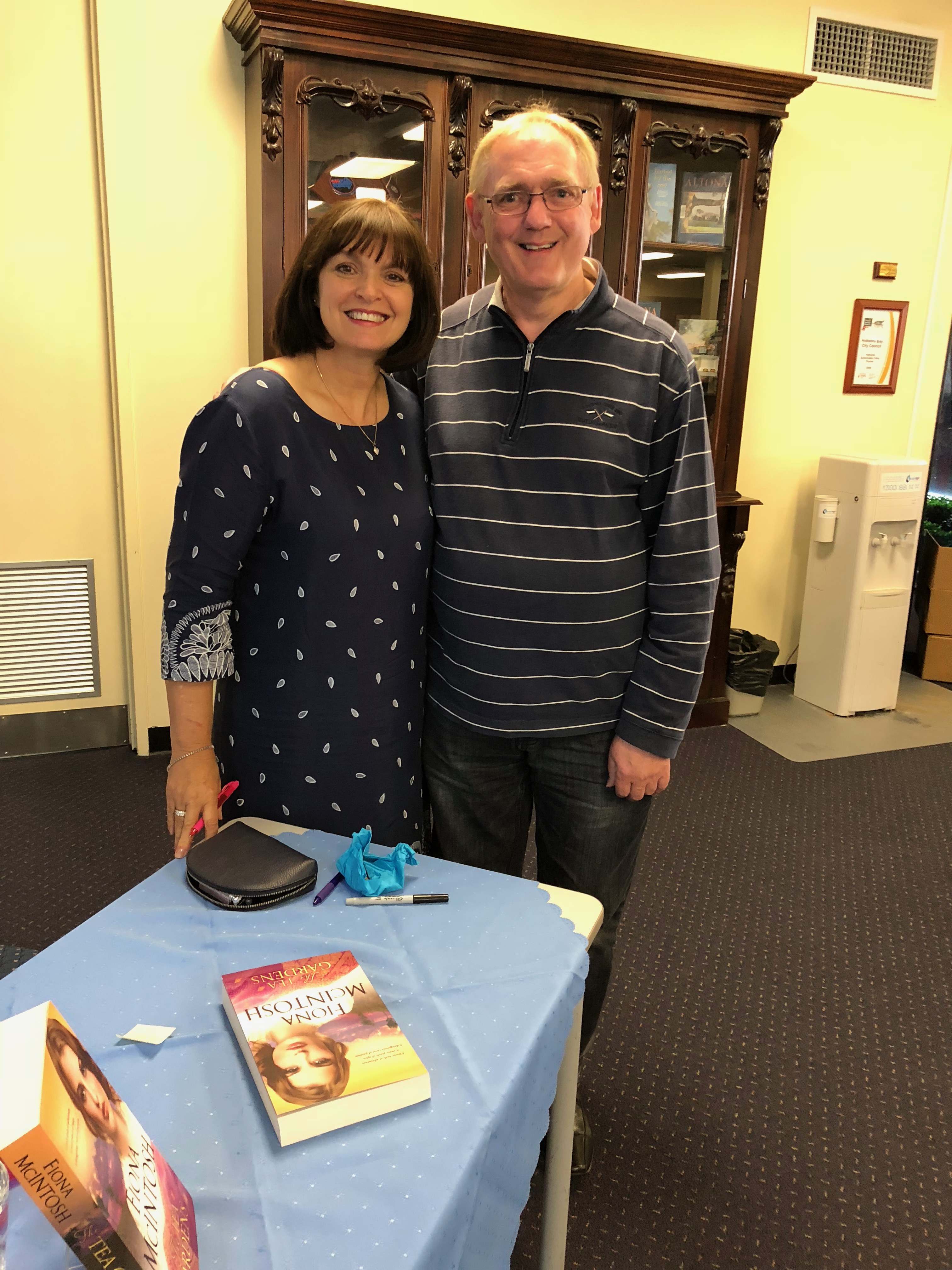Fiona McIntosh
Amiri & Aroha Rebranded as Gang Girl
27/01/20 19:28

Back in September 2018, I attended a masterclass in commercial fiction with bestselling Australian author Fiona McIntosh. Since then, I’ve spent every available moment working on a complete rewrite of Amiri & Aroha, which I have now retitled Gang Girl.
I learnt so much at the masterclass. Fiona was quick to point out the immense potential of my dramatic opening scene. On reaching adolescence, Gang kids are given a full facial tattoo in a barbaric ceremony to pledge their allegiance to the mob. Workshopping the first chapter with Fiona proved a revelation. Fiona showed me how to tighten the scene and ramp up the tension. ‘Don’t be afraid to be brutal,’ she told me. ‘Make your readers feel the pain the kids endure when they’re chiselled.’ The result—a gripping opening chapter that Fiona told me was one of the most compelling she’d seen for some time.
The masterclass taught me to be bold. In reworking the story, I have contrasted Aroha’s innocence with the harsh reality of Once Were Warriors. At the heart of Gang Girl, we have a strong woman determined to take charge of her own destiny. The Gang stole her childhood. She won’t let them claim the rest of her life.
At Fiona McIntosh’s inaugural masterclass convention last October, I had the opportunity to pitch to two leading publishers. Both were enthusiastic about the project and I have used their feedback to further refine the manuscript.
I believe Aroha’s story will resonate with a wide readership. I hope to bring you more exciting news soon!
Michael Robotham at Fiona McIntosh’s Masterclass Convention
18/10/19 12:41

How fantastic to to meet best selling Australian author Michael Robotham at Fiona McIntosh's inauguarl mastercall conveentrtained us with the How fantastic to meet best selling Australian author Michael Robotham at Fiona McIntosh’s inaugural masterclass convention.
In his opening keynote, Michael enthralled us with anecdotes from his extraordinary career. He began as a reporter and sub-editor for national newspapers in the UK. He went on to be a ghostwriter for the likes of Lulu and spice girl Geri Halliwell.
Michael’s career catapulted when the opening chapters of his first novel, The Suspect, sparked an international bidding war at the London Book Fair. The rest is history and made everyone in the audience extremely jealous!
Michael’s talk was as captivating as his books and got the conference, in South Australia’s beautiful Clare Valley, off to a brilliant start.
Fiona McIntosh and The Tea Gardens
24/12/17 10:25

On a recent visit to Melbourne for a medical conference, I had the pleasure of meeting best-selling Australian author Fiona McIntosh. Coincidentally I just finished reading her latest novel The Tea Gardens on my flight across the Tasman.
The Tea Gardens has particular significance for me. Like the novel's heroine, Isla Fenwick, as a young doctor I worked in India in a region of overwhelming need.
Fiona's evocative descriptions brought back that heady mixture of awe and panic as the sights, sounds and smell of India flood the senses. Even more revealing, the novel captures that strange combination of professional competence and emotional naivety that so many medical graduates experience on entering the outside world.
We meet Isla as she faces a personal dilemma on her return from India. In her own words, she recalls her defining rite of passage. Her journey begins in the grey streets of London in 1933 where her widowed father engineers a meeting with an old flame, the aptly named Jovian Manderville. But Isla made a promise to strike back at the tropical disease that took her mother's life.
We live and breathe Isla's journey to Calcutta and share her joy and despair as she sets up a midwifery clinic. Her attempt to save a girl whose pregnancy violates the caste system ends in tragedy and endangers the life of a brilliant but maverick colleague, Professor Saxon Vickery. Facing personal and professional ruin, Isla follows Vickery to the foothills of the Himalayas, where she finds love, forgiveness and guilt in a resolution that questions all that she holds dear.
Thankfully, my time in India was much less dramatic than Dr Fenwick's but proved none the less life-changing.
Fiona regaled a delighted audience at the Altona Library with tales of her trip to India to research The Tea Gardens. Her anecdotes ranged from the ingenious to the outrageous, seducing a member to gain entry to a gentleman's club in Calcutta. Fiona told us that she does not write about anywhere that she has not experienced first hand. It shows in her work. When you finish The Tea Gardens you too have travelled from the grime of Britain to the squalor of Calcutta and the ethereal beauty of the Himalayas.
I have to admit to a tinge of jealousy for Fiona's lifestyle. I'll have to set my next story further afield.
